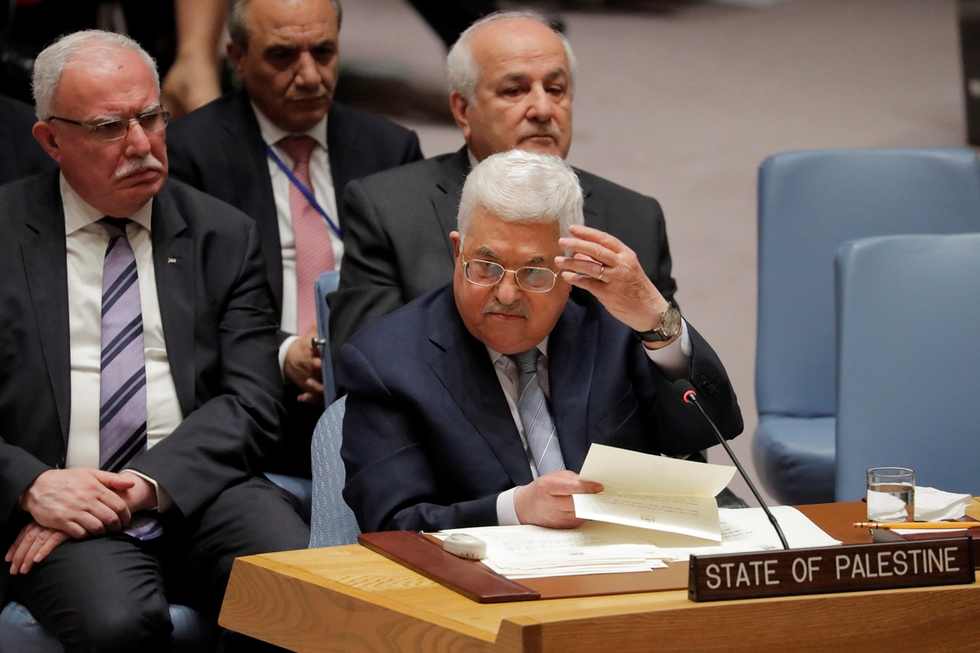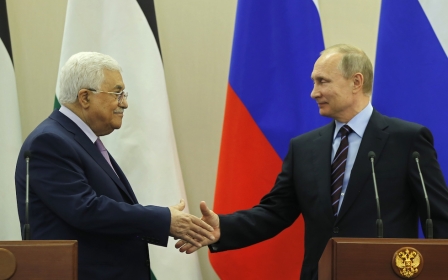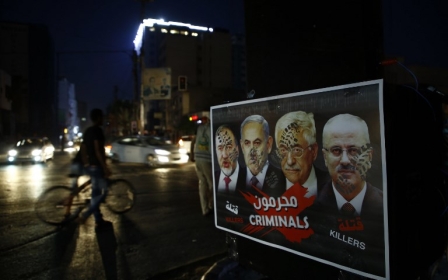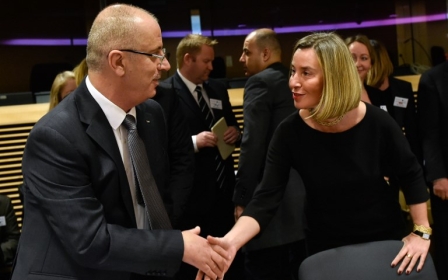Abbas calls for Middle East peace conference in rare UN speech

Palestinian President Mahmoud Abbas on Tuesday called for an international conference to be held later this year to launch a new, wider Middle East peace process and pave the way to Palestinian statehood.
In a rare address to the UN Security Council, Abbas presented a plan to revive Israeli-Palestinian talks under a new international peace process that would replace the US-led track.
President Donald Trump's decision to recognise Jerusalem as Israel's capital infuriated the Palestinians, who declared that Washington could no longer play a role as peace broker.
"To solve the Palestine question, it is essential to establish a multilateral international mechanism emanating from an international conference," Abbas said.
Abbas said the conference would be attended by Israel and the Palestinians, regional players, the five permanent Security Council members - Britain, China, France, Russia and the United States - and the diplomatic Quartet comprised of the European Union, Russia, the United States and the United Nations.
The gathering should lead to full UN membership for the state of Palestine, mutual recognition of Israel and Palestine, and the creation of a new international mechanism to reach a final settlement, he said.
The Palestinian leader immediately left the council chamber following his address, leading Israeli Ambassador Danny Danon to complain that Abbas was "running away" from dialogue.
Addressing the council, US Ambassador Nikki Haley warned that turning to the United Nations and rejecting the US role in peace talks "will get the Palestinian people exactly nowhere toward the achievement of their aspirations".
Haley was accompanied to the council meeting by Jason Greenblatt, the US envoy for Middle East peace and Jared Kushner, Trump's son-in-law and adviser on Israeli-Palestinian peace efforts.
Greenblatt and Kushner later met with council ambassadors behind closed doors to discuss US peace efforts, but they did not provide specific details of the Trump plan.
"They talked about the progress in their efforts and contacts, and this was useful," said French Ambassador Francois Delattre.
France, which hosted a Middle East peace conference in Paris last year, is ready to examine Abbas's proposal for a revamped approach, but this "would not cast doubt" over the "indispensable" role of the United States, Delattre told the council.
"Our negotiators are sitting right behind us, ready to talk," Haley said, before adding: "But we will not chase after you. The choice, Mister President, is yours."
The US State Department said on Tuesday the United States would consider supporting the involvement of other countries in Israeli-Palestinian peace talks in the future if it believes it would be helpful in reaching an accord.
"If at some point we believe that other countries could be helpful to the peace process, we would certainly be willing to bring them in," said State Department spokeswoman Heather Nauert.
"Is the time right for that right now? I'm not sure we've decided that, but that is certainly something that could happen in the future," Nauert added.
The Israeli-Palestinian peace process has been deadlocked since a major push by the administration of Trump's predecessor Barack Obama ended in failure in April 2014.
The Trump administration has said it is preparing a new peace plan even though no details about it have emerged thus far.
The Palestinians hope that greater international involvement in the peace process will serve to counter the US stance, which many see as biased in favour of Israel, especially after Trump's decision on Jerusalem.
Israel, which often accuses the European Union and the United Nations of bias against it, is reluctant to accept any other mediator than the United States.
The Palestinians see East Jerusalem as the capital of their future state and UN resolutions call on countries to refrain from moving their embassies to the city until its status is resolved in an Israeli-Palestinian deal.
In December, the General Assembly voted 128-9, with 35 abstentions, to reject the US decision to recognise Jerusalem.
That vote in the 193-nation assembly came after 14 of the 15 council members voted in favour of a similar measure. The United States vetoed that draft resolution.
New MEE newsletter: Jerusalem Dispatch
Sign up to get the latest insights and analysis on Israel-Palestine, alongside Turkey Unpacked and other MEE newsletters
Middle East Eye delivers independent and unrivalled coverage and analysis of the Middle East, North Africa and beyond. To learn more about republishing this content and the associated fees, please fill out this form. More about MEE can be found here.




